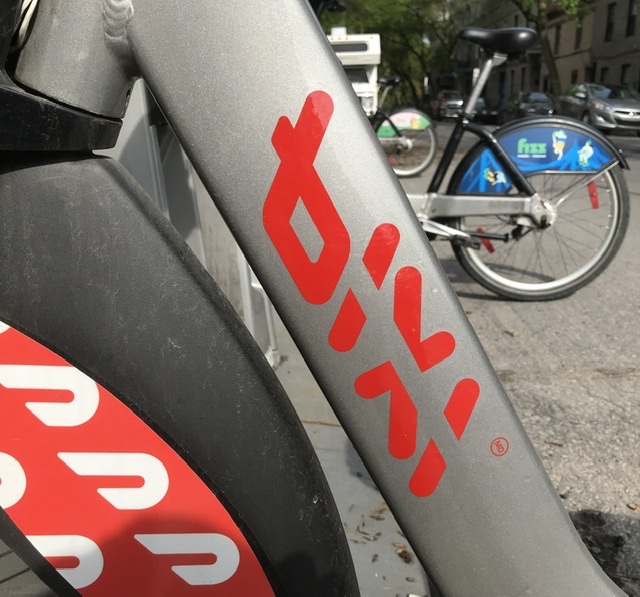Until COVID hit, one of my chief joys in the summer was riding my flowered “bridal bike” to the beach. The ocean was beautiful, the air was (mostly) sweet, and the crowds endlessly interesting. Unlike other forms of exercise, I found cycling fun, something I could indulge in for hours and still want more.
Cranking my big heavy beach cruiser around was physically challenging but also liberating. I would have loved to cycle during the lockdowns but felt it was too risky, particularly with the high percentage of anti-vaxxers/anti-maskers in our local neighborhoods. With my gym and dance studio also closed by COVID, and with my tendency to use food as a stress reliever, I…er, gained some weight, so I resolved to get more exercise during our stay in Canada.
We weren’t bringing a car, so we knew there would be a lot of walking, but walking just doesn’t have the same sense of joy for me. Bringing my big bike also wasn’t feasible.
Then I saw an article about Montreal’s alternate transportation programs Communauto and also, ta-daaah! a bike sharing program called Bixi. I was skeptical—L.A.’s bikeshare programs are a hot mess—but, as it was my only option, I gave it a try.
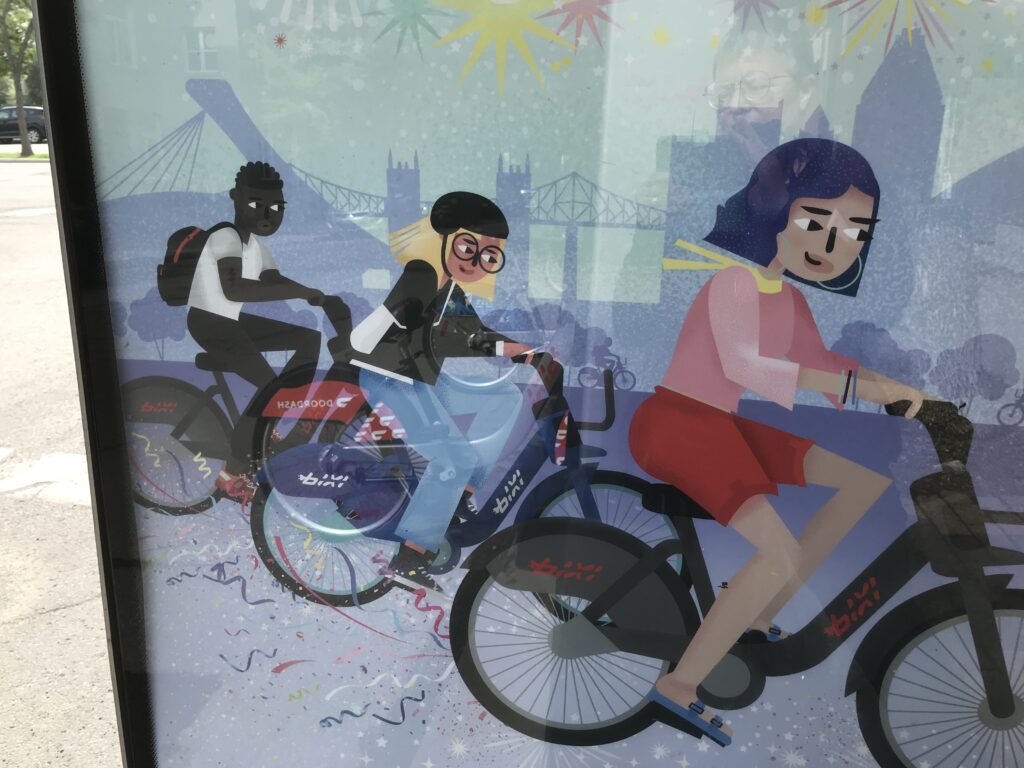
What makes Bixi different from the rental scooters and bikes you see strewn all over L.A. sidewalks is that it’s a non-profit set up by the City on Montreal. You don’t have a bunch of rogue companies competing for market share by dropping equipment all over town and leaving citizens to deal with the subsequent obstacular mess.
With Bixi, you can buy a single ride or a season pass (Montréal has harsh winters, so the season runs from May to October. FYI, people do ride bikes here in the winter snow and Montréal has a good reputation for keeping the main bike lanes cleared, but Bixis aren’t in the wintry mix…i.)
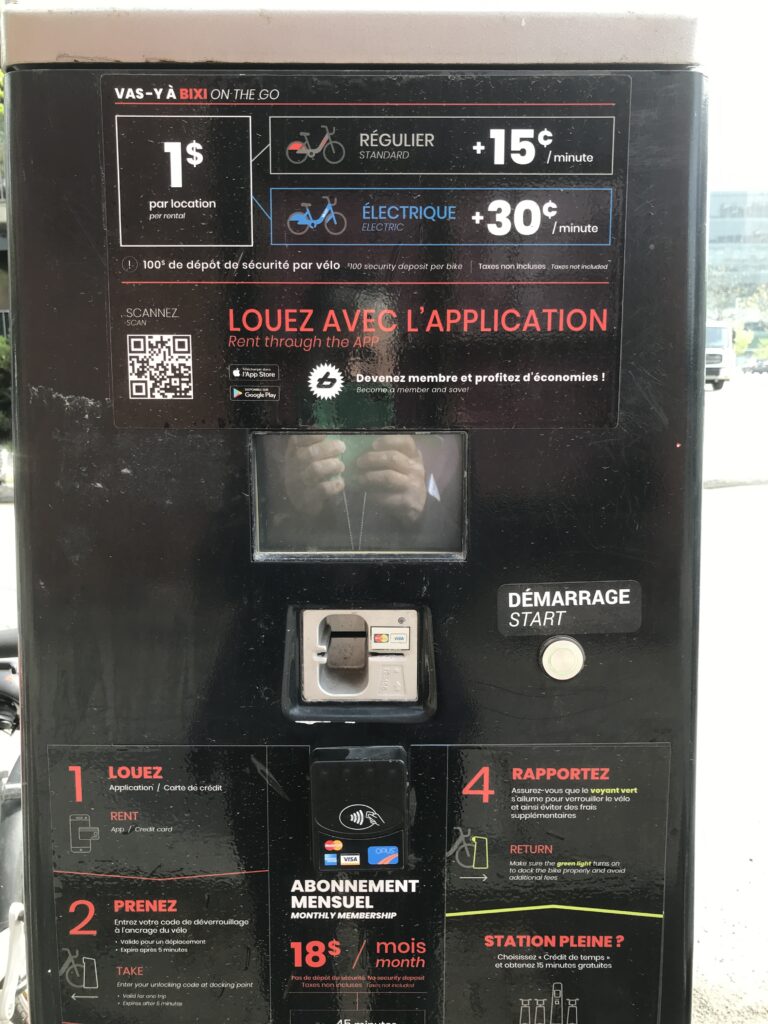
The Bixi program is designed for errands and commuting, so your base fare pays for a 45 minute ride after which you pay a per-minute fee. You use the Bixi phone app to unlock a bike at a local docking station—there’s one right at the end of our street!—and drop it at any other docking station near your destination. The bikes are geared for easy riding, and there are also electric bikes available (haven’t ridden one yet as I want the exercise of pedaling, but might take a longer excursion one day to try one out).
You can report faulty bikes through the app, and thus far the equipment seems fairly well maintained. If there’s a problem, Bixi sends one of its cute little trucks to stations that need repair or upkeep.
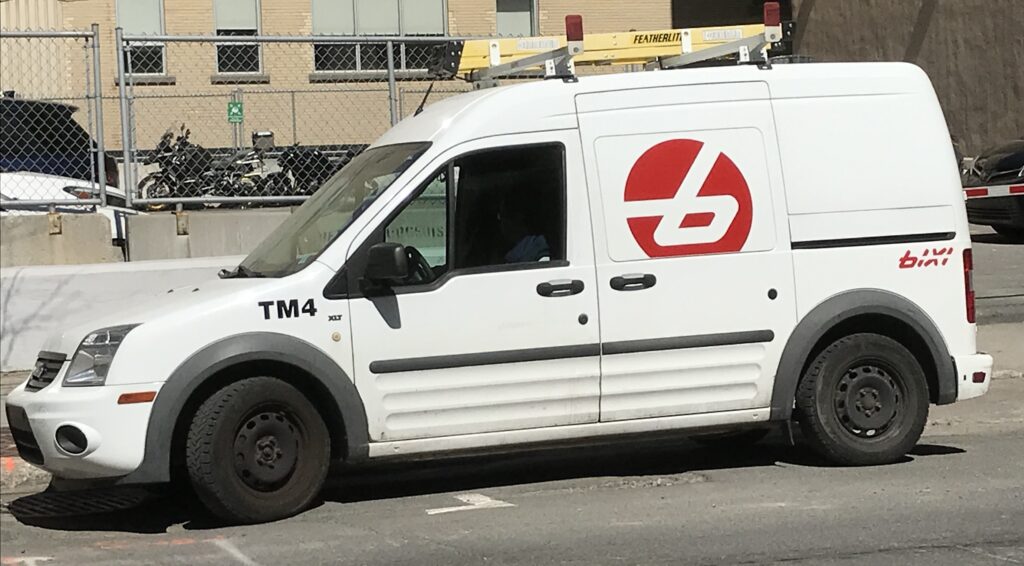
But there are problems. Because Bixi’s system is used for one-way commuting, a preponderance of bikes end up downtown in the morning and in outlying areas at night, and in docks near popular locations. Keeping the bike inventory equalized around town is a challenge that affects usability; I ran into this myself when I rode downtown last week and couldn’t dock my bike because the stations were full (and my 45 minutes was almost up!)
The app shows how many bikes and open docks are at each station, but those numbers can change during your transit—especially during business hours—so you might end up using some of your valuable ride time hunting for an available dock.
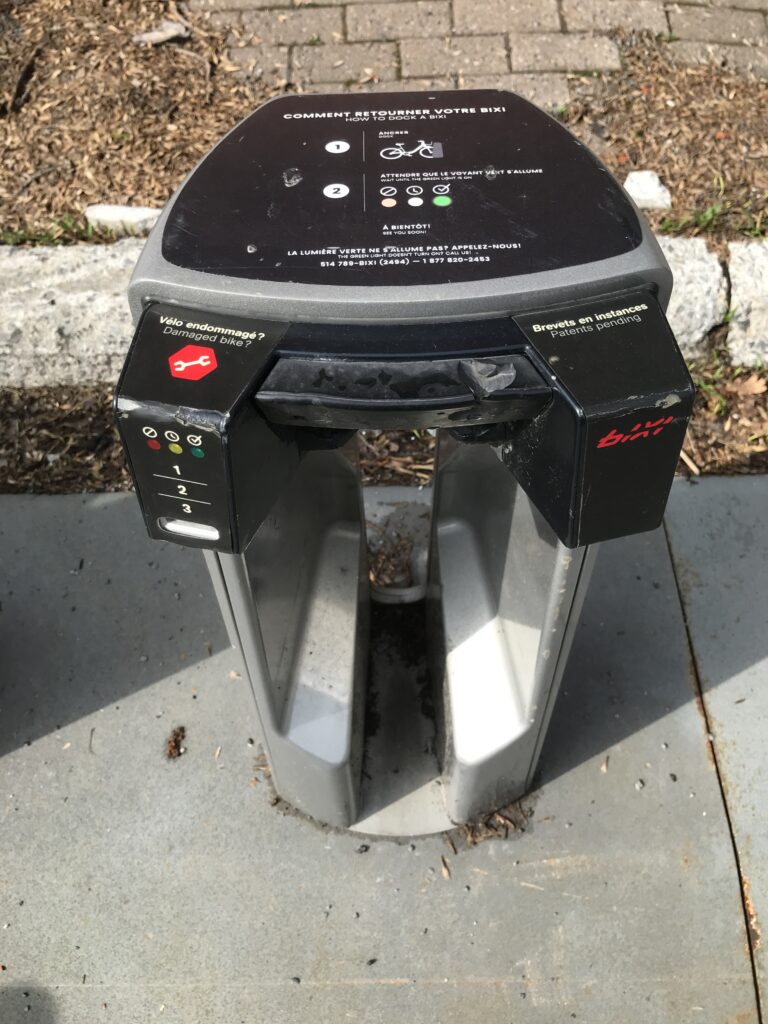
But Bixi has very cleverly incentivized (and gamified, a little) having users assist with keeping their bike numbers balanced. The Amis-Bixi (Bixi Friends) program allows you to earn points towards free rides if you take a bike from a station that’s full and drop it at one that’s empty. You can see which stations are up or down on the app, and plan your ride accordingly. It’s very smart, though I’m not sure how many riders participate or how effective the program is.
What sets Bixi apart is its non-profit mindset. Québec isn’t a wealthy province and it faces multiple environmental and infrastructure challenges. Because Bixi is meant to solve the less-polluting commuter conundrum rather than make a profit, it ends up being a sensible, well-functioning system with minimal environmental impact instead of a flash-and-trash scramble for dollars.
In this case, Montreal’s need to economize ended up creating the nicest possible thing. This is one of the ways I appreciate being in a place where crazed capitalism is not the only driver on the civic-life road.
I’ve really enjoyed Bixi and hope to use it more this summer. I confess it’s a little stressful riding around a town I don’t know well and the learning curve is high, but as I get familiar with the streets I know I’ll enjoy it more.
My only other cycling issue, one not in Bixi’s control: I encounter a lot more cigarette and pot smoke in public here than I do in California. Being a particulate-ly sensitive little person, that’s a problem for me on my rides (and walks, and when keeping the windows open at the apartment). Other than that, I think I’d be a completely happy Montréal walker-and-biker chick.
Anyway: Bixi’s a win! Other cities could learn a lot from its success. Let’s hope they do.

